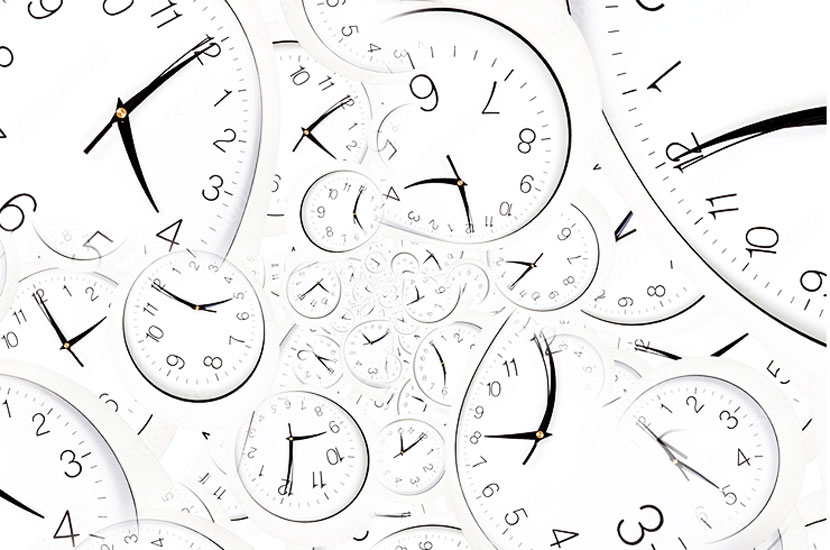Whenever I travel, I see the time miscalculation that is created in the world we live in. It’s the flawless illusion of always getting things done or getting to a place on time. We are telling ourselves stories and believing them, too.
After the pandemic, we are finally back on the road again. Trains and planes are packed. We are thirsty for the mobility we haven’t had for so long. We want to see our colleagues, have face to face meetings, be in one seminar room with all team members, and so on.
We talk about getting to a destination in a couple of hours. It’s only a 2-hour ride, it’s only a 3-hour flight. Some of the hard-core business travelers I work with tend to overestimate their time resource like there is no tomorrow.
There is rarely any thought given to time buffers. I often hear instead, “This was carefully planned by my assistant.” I hope the assistant was realistic enough and calculated some extra time so you can actually get on the plane you need to get on. There are these simple things in life that we don’t want to see, e.g. the way to the train station, the time on the train or in your car. No train nor plane is on time today. Highways are clogged with never-ending construction sites. You need the extra time, period.
Once you get there, it’s the waiting time. Yes, business lounges are convenient and pleasant, if there are some. In the end, you don’t want to waste time, but you want to use it effectively. I totally understand. Saying that, your productivity level is definitely not as high as it was while working in a quiet office space. And the meeting right after your arrival is not either. Yes, you are used to working wherever but at the end of the day, it is a travel day you are looking at. The quality of work after a long day on the go is just not the same.
Recently, I traveled to a conference. A direct flight within the US. I was located close to a regional airport. The flight was on time. At least before I had left the house. Getting to the airport, checking in your bag, navigating through security, and finding your gate. The walks can be long depending on the size of the airport. Don’t forget, you are never alone. There are other people who are doing the same thing. On the way to the airport, I found out that the plane was delayed. Alright, I thought. I will be reading, writing, and enjoying lunch, totally chilled.
Was the time passing? Sure, the delay was getting longer though. A 1-hour delay became 1.5 hours. Finally, the airline app stopped updating the boarding time and the takeoff time. In other words, they were very busy getting people on board as soon as possible, telling passengers to take their seats quickly as we were running behind schedule. I’m sorry? Who is late? I was here on time, you caused me to be late. After arriving at my destination, I hit rush hour, so the driver took much longer to get me to the conference venue. Was my trip only 3 hours long? Absolutely not.
Where am I heading with this? Well, we live under the illusion that we always arrive on time, and we don’t add any extra buffers for unexpected conditions. We create the illusion and we continue living it. More digitization doesn’t solve our problems, it merely accelerates our pace.
This is by the way exactly what we do in the office. We jam pack our calendars with back to back meetings. There isn’t time between meetings for a break, coffee chat, lunch, or running from one meeting room to another. Not mentioning creativity for necessary innovation The illusion that we can manage our day without hiccups or interruptions is very real. We put unnecessary stress on ourselves, not giving ourselves the chance of actually being a human being and not a device to be turned on and off.
How do you get out of this habit? Be more conscious when planning your days. Give yourself a break. Plan more white space in your calendar. Be realistic instead of leaning into the illusion that your day has 48 hours.


Recent Comments